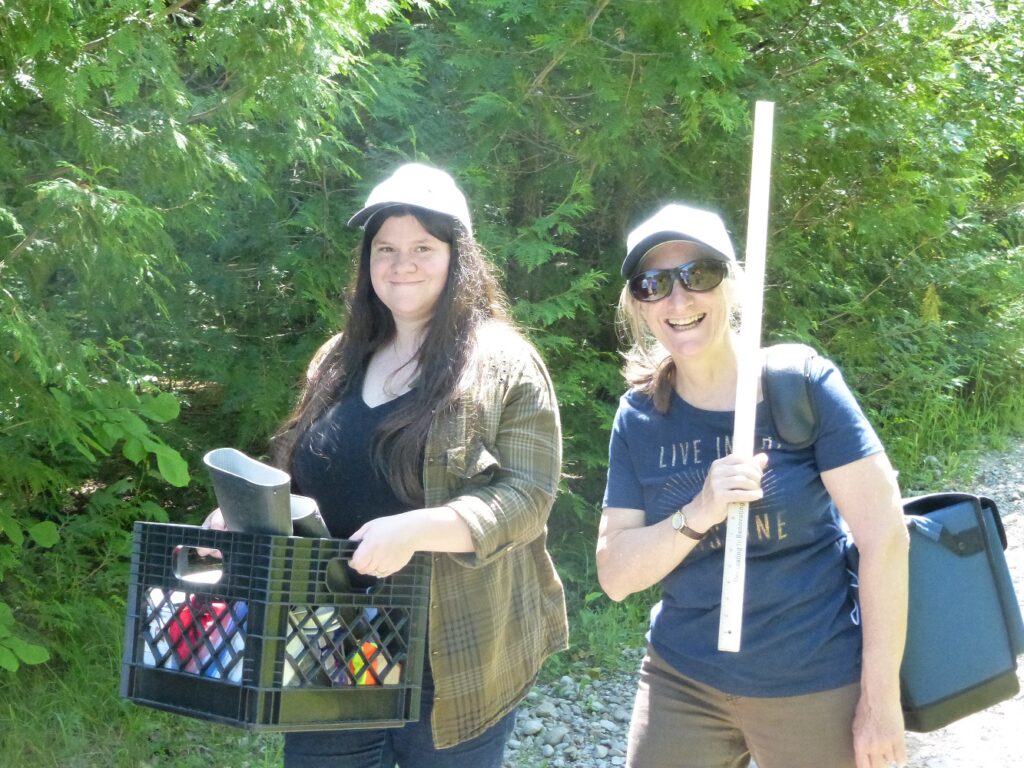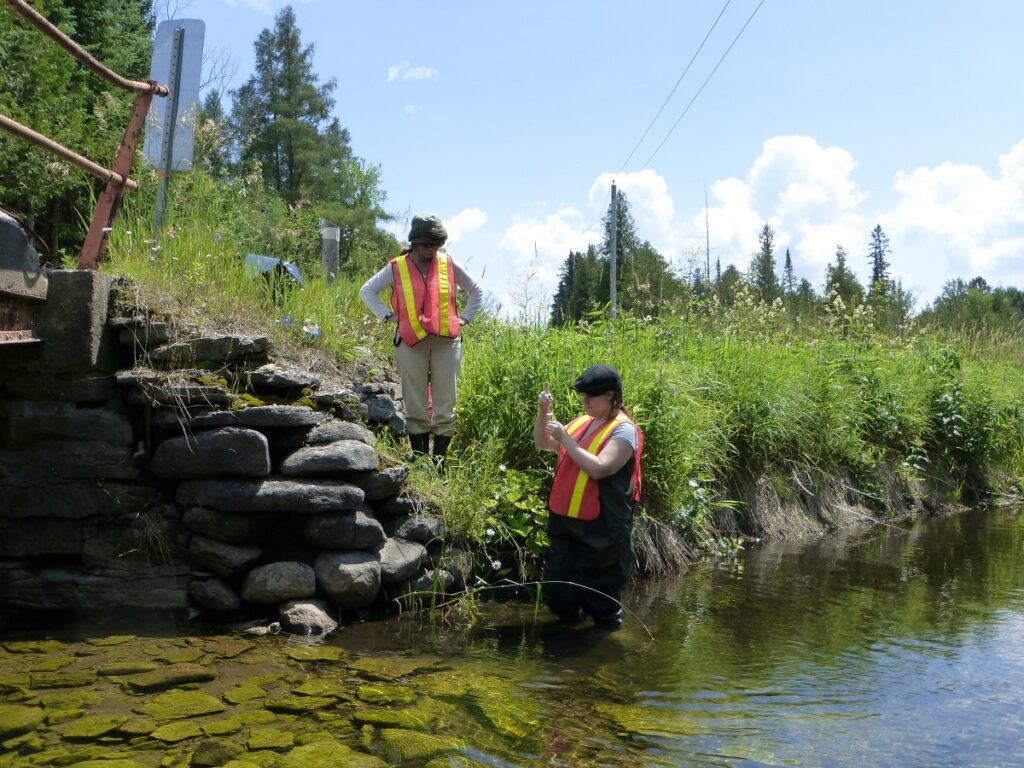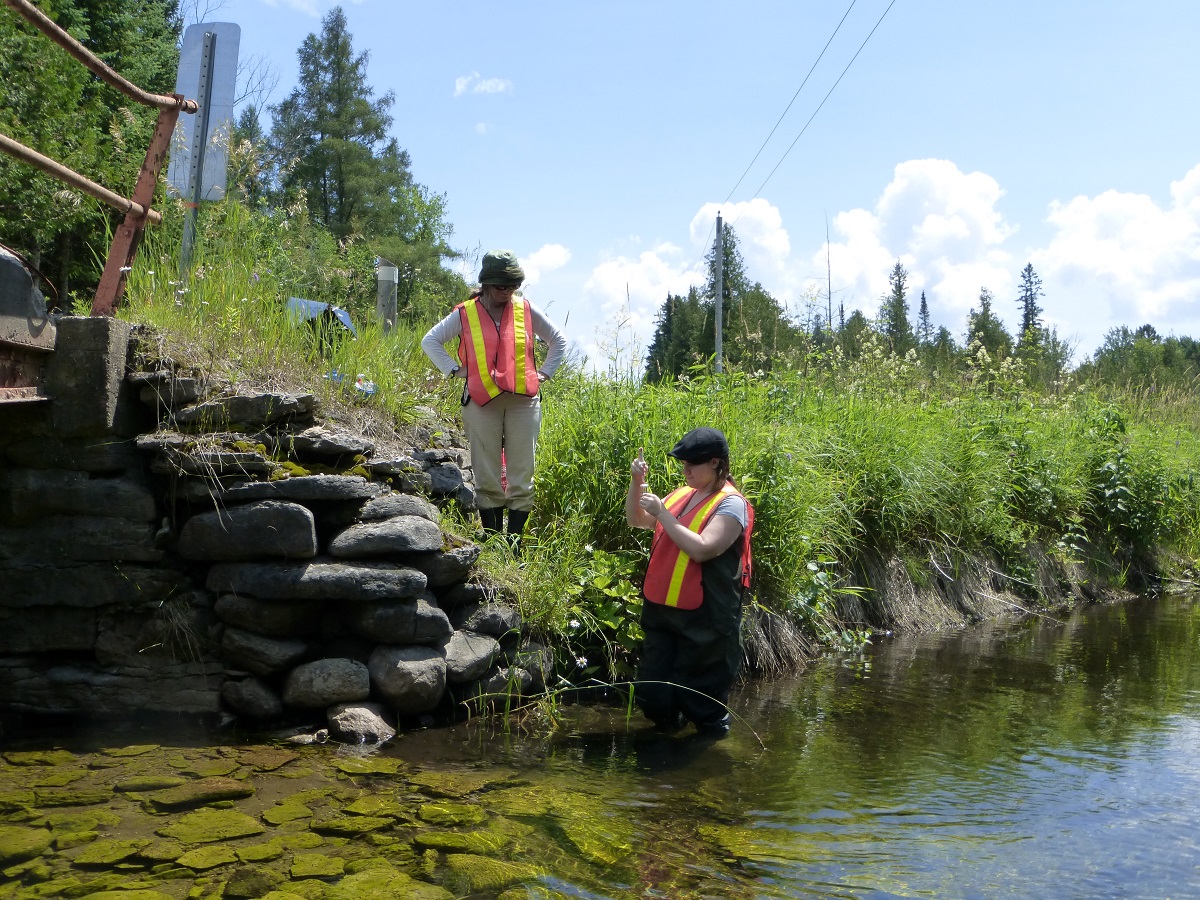As published in The Villager Magazine May 1, 2025
Trudy Coughlin has a degree in anatomy and has always loved the outdoors. In the early years of her marriage, she and her husband bought a farm in Kirkland Lake, but found they couldn’t make a living and she eventually began teaching in the dental program at Georgian College.
When Trudy’s daughter was little, she knew without a doubt Meagan would go into science. She had a quiet little girl who loved bugs and would take her mother’s hand to show her a tree with a lightning strike.
After a degree and diploma in ecology and environmental monitoring, Meagan was looking for work when she noticed an ad for Couchiching Conservancy’s community science program. Meagan and Trudy became the Conservancy’s first community science volunteers: a mother daughter team.
Community science is a program where volunteers record and submit observations to be used by research scientists. Volunteers often submit animal or plant sightings using an app like iNaturalist that helps identify species. The observations are used to study patterns like migration, invasive species or the effects of climate change.
The first community science program at The Couchiching Conservancy was monitoring water quality in streams and wetlands. Trudy and Meagan started at Perch Creek along Monck Road in Ramara. They would take water samples from the headwaters (creek source) and compare them with another site further downstream. Because headwaters usually begin underground, the water quality is often clean and low in contaminants. Sampling streams over long periods of time alerts scientists to water quality disruptions.
Ten years later, Trudy and Meagan still regularly monitor that site as well as two more. They have fallen in love with the locations and love how they change year round. The sites often flood but Trudy now sees that’s the cycle of nature. She appreciates that she learns something new without fail, every time they go out. What she, the retired professor, likes best is seeing her reserved daughter in a teaching role. Meagan will patiently and expertly explain to her that dissolved oxygen is low in a marsh and it’s nothing to worry about even though that number is so different from the readings of running water. She likes seeing her daughter’s eyes light up as she performs field work and Trudy cherishes the long weekly drives the two of them do to their water sites. It’s a time they’ve come to depend on to catch up away from work and life stress.


Through the Conservancy, her daughter introduced Trudy to nature in ways she hadn’t experienced, and in turn the Conservancy has created a life in retirement she hadn’t expected to want. She and her husband purchased and had to sell a farm at the beginning of their marriage. They’d dreamt of days spent tending to the land. Her volunteer work now allows her to do just that, but with her daughter. Meagan has given her a connection to the past and an understanding of nature she didn’t previously have.
Trudy is concerned about this planet. Volunteering with the Conservancy gives her a feeling of action and optimism during a time many others feel hopeless in the face of environmental crisis.
In the month of Mother’s Day it feels fitting to point out it was a mother daughter team who were the first to step forward for Couchiching Conservancy’s community science program to help protect Mother Nature. Meagan and Trudy are our longest standing community science volunteers.
The Couchiching Conservancy helps protect over 15 000 acres of natural land in your area for future generations.

